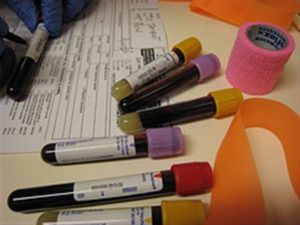
Next Lavertu argued that her lawyer was ineffective (incompetent requiring a new trial) for failing to question the State’s witnesses about their handling of blood test evidence and failed to object to the Prosecutor’s arguing to the jury that she (the prosecutor) believed that because the blood drawer was a chaplain at the jail that the prosecutor believed she could be trusted. The Court of Appeals attributed these failings to counsel’s trial strategy and found them not to require reversal of the conviction. It should be noted that Prosecutors and Defense attorneys can never argue what they think or believe personally about the evidence. “It is improper for counsel to state to the jury counsel’s personal belief as to the veracity of a witness; however, it is not improper for counsel to urge the jury to draw such a conclusion from the evidence.” Metts v. State, 270 Ga. 481, 484 (4) (511 SE2d 508) (1999). What the attorneys think is not relevant to the jury’s deliberation. As for the blood sample, it spent five days unaccounted for in transit from the Jail to the Crime lab with no indication that it was refrigerated or protected from heat, degradation, or contamination otherwise.
-Author: George Creal

